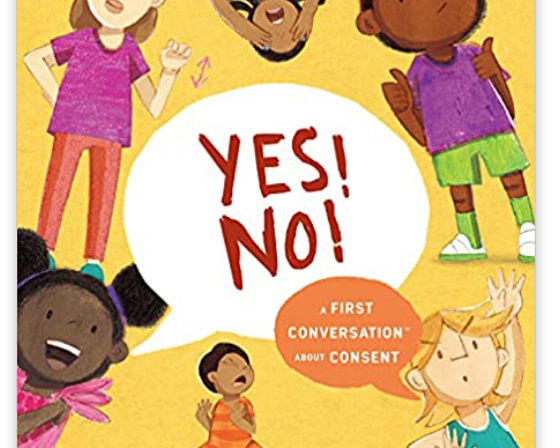This post was written by Mindy Bender-Webster, our PreK lead teacher.
Preschool-age children often connect to others through physical touch. They may sit closely to a friend while looking at a book, hold hands in the hallway, playfully push during a game of tag, or share an affectionate hug. Therefore, teaching body autonomy/boundaries is an imperative part of their emotional/social development.
Students participated in an important lesson about CONSENT while discussing the book Yes!No! by Megan Madison and Jessica Ralli. I HIGHLY recommend this book.
(I skipped one page in the book where different body parts, including “private” body parts, are labeled. While I strongly believe in using correct anatomy terms, I do not teach these words during group lessons and encourage families to take time to introduce them at home.)
When kids understand the importance of consent, they:
– Feel empowered to confidently make decisions about their bodies
– Feel comfortable talking to trusted adults about these topics
– Know the importance of setting and respecting boundaries
In the classroom setting this looks like children:
– Expressing preferences for play. (“Yes. I want to play tag.” “No, I don’t want to play tag.”)
– Expressing preferences for touch with peers/teachers. (“No. I don’t want a hug. I’m okay with a high five.”)
– Asking others before engaging in touch. (“Do you want to hold hands in the hallway with me?” “Can I feel your soft jacket?”)
– Respecting the preferences of others by listening to their words and watching their body language.
Teachers support this important lesson by modeling, asking, and “noticing.”
– Mindy says, “Hey, Bryce. Can I give you a hug?” When Bryce says, “No,” she says, “I hear Bryce saying, “No.” I won’t give him a hug.”
– “Good morning, (student)! Would you like a hug, high five, or handshake today?”
– “I notice you grabbing your friend’s hand? Did you ask first?”
– “Your expression is showing me that this tag game feels scary. You can tell your friends, “Stop. I’m not playing this game.
We invite you to reflect on the ways you discuss/teach consent at home. Here are some resources we find helpful:

